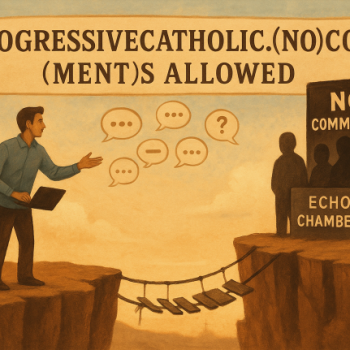GODSTUFF:
SAY IT WITH ME NOW: ‘ITS NOT ABOUT ME’
Tom Robbins assumes a Zen position
What if everything you thought you knew turned out to be wrong?
About the world. About God. About yourself.
What would happen if everything suddenly changed, because of illness, infirmity, or, perhaps, because a bit of wisdom floats your way and knocks your perception of reality on its tuckus?
Would you panic?
Would you mourn?
Or would you welcome the change and roll with it, enlightened being that you are?
I got to thinking about such things Thursday while talking to my buddy Tom Robbins, the novelist.
I’d called him to have a chat about Hermann Hesse’s classic book Siddhartha, the 1922 spiritual allegory set in India in the time when the Buddha was alive and walking the Earth. You probably read it in high school or in that Literature 101 class freshman year of college.
Earlier this month, Modern Library published a new hardback edition of Siddhartha, which someone once described aptly as a kind of Hindu-Buddhist-Zen version of The Catcher in the Rye. Robbins wrote a new introduction for it.
A kind of Indian bildungsroman, Siddhartha chronicles the spiritual journey of Siddhartha, the son of a Brahmin (or priest), as he becomes convinced that all he’d been taught was wrong and sets out to find enlightenment.
First Siddhartha gives up his earthly possessions and becomes a Samana, roaming the wilderness in a loincloth with fellow ascetics in an attempt to mortify the flesh to enlighten the spirit. But after three years of fasting and meditating for hours on end, Siddhartha realizes that even though he has overcome the burden of this mortal coil, he’s no more enlightened than when he first started running around in his underwear. So he leaves.
Next he meets the Buddha himself — Siddhartha Gotama — to whom his best friend becomes a disciple. While he respects the Buddha and believes he is a holy and enlightened man, Siddhartha decides to reject the Buddha’s teachings and continues his quest for wisdom on his own.
Instead of a tempered life of simplicity and abstinence of all kinds, Siddhartha embarks on a life of hedonism, indulging to excess in sex, drink and gambling. But eventually the lusty life proves to be as unfulfilling as his ascetic loinclothed days. He despairs, contemplates suicide, and after a few more curves in the road, ultimately, as an old man, discovers his peace — of mind, of spirit –inside himself.
“Knowledge can be communicated, but not wisdom,” Siddhartha says. “One can find it, live it, be fortified by it, do wonders through it, but one cannot communicate and teach it.”
On Thursday, Robbins put it this way: “What Siddhartha arrived at and I think is the central message of the text, is that the only way to come to terms with existence is to look inward. … If the book Siddhartha is about anything it’s about change and the many incarnations that a single life can go through when that person who embodies that life is growing.”
In his introduction to the new Siddhartha edition, Robbins describes Hesse’s novel as, “A tough little wind-tossed blossom … Siddhartha comes to rest in a place of deep wisdom. Ah, but while it has continued, decade after decade, to inspire its readers, to expose them to the mysteries of wisdom, it has never pretended it could make them more wise. The road to enlightenment is an unpaved road, closed to public transportation.”
As we chatted, it became clear that recently Robbins’ own long strange trip toward enlightenment has been moving along a bumpy road.
A wildly popular and spectacularly eccentric novelist, Robbins has published nine books — among them Still Life With Woodpecker, Even Cowgirls Get the Blues, Half Asleep in Frog Pajamas, and (my favorite) Fierce Invalids Home from Hot Climates.
But now, Robbins, who turns 70 on Saturday, doesn’t know if he’ll be able to write ever again.
In fact, he told me, the introduction to Siddhartha, which he penned in December 2005, was the last thing he’s been able to write.
Not because he has writer’s block. It’s because he cannot see well enough to write — or read.
In the last year, Robbins has undergone several surgeries to correct damage to his right eye. About 25 years ago, Robbins was hit in the eye with a tennis ball. Over the years, scar tissue developed slowly, but in recent years the scarring had begun to encroach on his cornea, he said.
He had the scar tissue and a growth removed, and found still more scar tissue. There were complications. More surgeries. Gory stuff. You get the picture.
For a few months before and for the seven months since he wrote the introduction to Siddhartha, Robbins hasn’t been able to write. “At all,” he says.
“But it’s kind of interesting not being able to write because I’ve been writing since I was 5 years old,” Robbins told me nonchalantly in the stubborn Virginia drawl that he hasn’t been able to shake despite having lived in the Pacific Northwest for the last 40 years. “It’s really kind of interesting. I think it’s important for me. It follows what we were just talking about in Siddhartha: the changes one goes through.
“When you’ve been writing for so long and people identify you as a writer, it becomes very difficult not to think of yourself as a writer, for that not to be your identity,” he said. “Now I’m not a writer any more.”
“Nooooooooooooooooo!” I whined into the phone, unable to stave off my rabid inner Robbins fan. “I hope you’re not always not a writer anymore,” I said, inarticulately.
“Well, ya know, I’ve got nine books in print. No sense in getting greedy here,” Robbins said, laughing rakishly.
“Will you come back to it? The writing,” I asked.
“I don’t know. I don’t know,” he said a little wistfully. “But ya know, I like this non-writing life so well that I might go back to my secondary ambition, which was to be an international jewel thief. But I guess you need good eyesight for that, too. I’d probably climb the ivy up the side of the Mediterranean villa and go inside and instead of taking the emeralds out of the contessa’s drawer, I’d grab some chocolates or something.”
He jokes. That’s Robbins’ way. Last year when we had a long discussion about faith and spirituality — his, mine, ours — he told me, “We live in hell because we take ourselves too seriously.”
I know he doesn’t believe that wisdom can be passed on — one has to find it for oneself — but still, that’s pretty good advice.
“When people ask me for advice — and I don’t know why they’re so foolish as to do so, but some people do — I say, ‘Every morning look in your bathroom mirror and say three times: “It’s not about me.”‘
“And when you come to the point where you don’t have to say that any more, where that is so ingrained in you that you just gaze in the mirror and you don’t have to say it to know it, at that point you can start saying, ‘It’s all about me.’ Because it is,” he said, laughing. “Because it’s all about you and me and everybody else on a non-ego level. Because there is only one us, ya know?”
I do.
That’s the kind of wisdom that you can see better with your spirit than with your eyes. Even if your vision is perfect.
Grace for the journey, Mr. Robbins.
I, for one, hope he makes a clean getaway with a fistful of emeralds.
Copyright © The Sun-Times Company
All rights reserved. This material may not be published, broadcast, rewritten, or redistributed.















